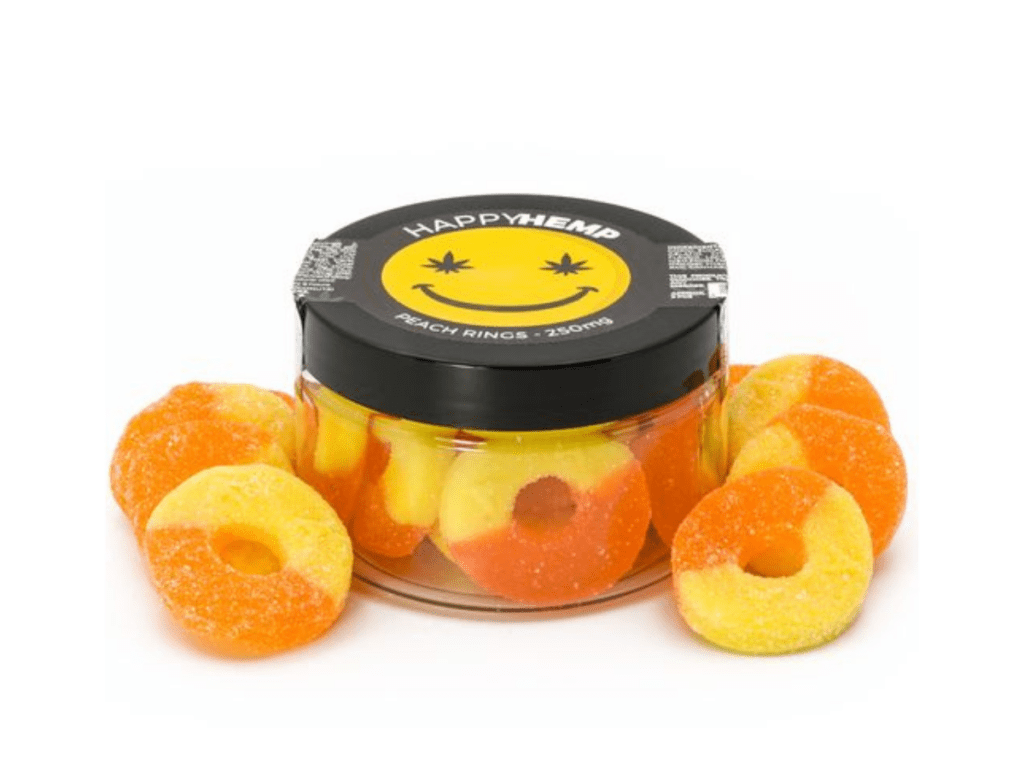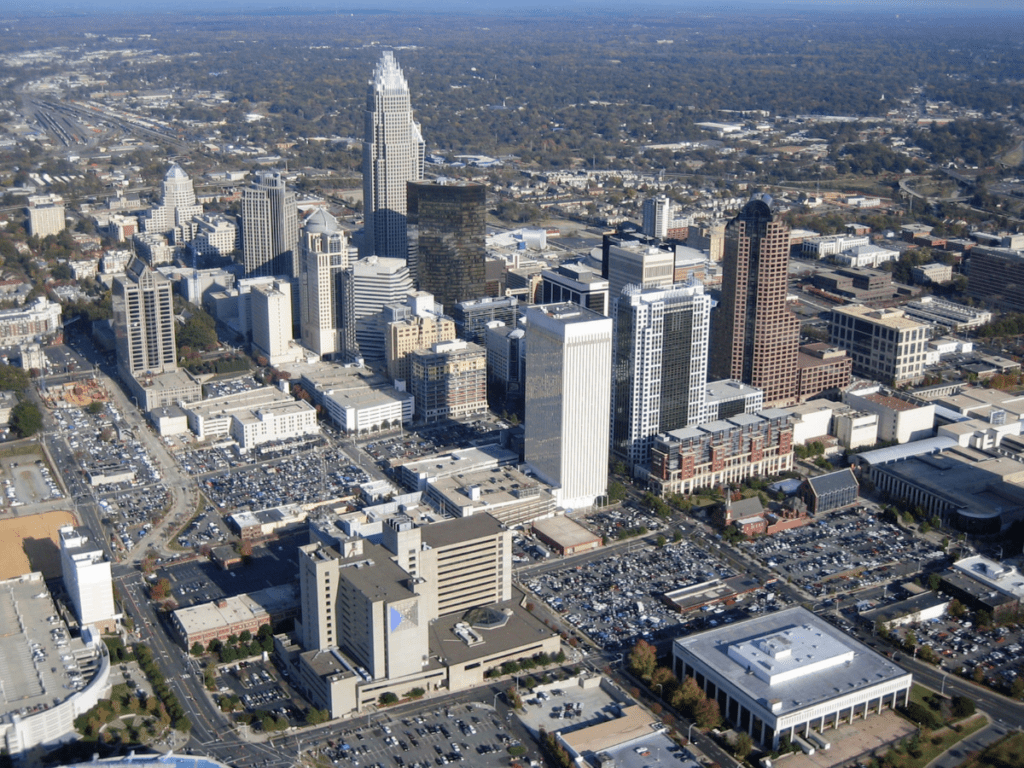Is Delta 8 Legal In North Carolina?
Key Takeaways:
- Delta 8 THC’s Legal Status: Delta 8 THC is legal in North Carolina under federal hemp laws but exists in a legal gray area with potential future regulatory changes.
- Federal and State Impacts: Federal regulations and state-specific legislation will ultimately determine the long-term legality of Delta 8 in North Carolina.
- Legal Alternatives to Delta 8: Consumers have access to various legal alternatives to Delta 8 THC in North Carolina, including CBD, CBG, and Delta 10 THC.
Are you confused about whether Delta 8 THC is legal in North Carolina? You’re not alone. With the rise in popularity of Delta 8 THC as a legal alternative to Delta 9, many consumers are left wondering where the law stands and how they can safely enjoy the benefits of this cannabinoid without legal repercussions.
At Happy Hemp, we don’t just sell Delta 8 THC products – we are industry experts. Our commitment to high-quality, lab-tested Delta 8 ensures that our customers can trust the products they use. We stay on top of the latest legal developments and safety standards, making us the go-to source for all things related to Delta 8 in North Carolina.
In this article, we aim to clarify the confusion surrounding Delta 8’s legal status in North Carolina, explore how it differs from Delta 9, and examine potential future changes in state legislation.
Delta 8 THC Vs. Delta 9 THC: What’s The Difference?
Both Delta 8 and Delta 9 THC are cannabinoids found in the cannabis plant, but they differ in chemical structure and effects. While both compounds interact with the body’s endocannabinoid system, they do so in slightly different ways, leading to distinct experiences for users.
Chemical Structure And Potency
Delta 8 THC and Delta 9 THC have a similar molecular structure, but the placement of a single bond is what sets them apart. This slight difference results in Delta 8 being less potent than Delta 9. Users often report a milder and more controlled high with Delta 8, making it appealing to those who want a more subtle experience.
Psychoactive Effects
Delta 9 THC is well-known for its strong psychoactive effects, often leading to feelings of euphoria, altered perception, and in some cases, anxiety or paranoia. Delta 8, on the other hand, offers a more balanced and clearer high, with fewer reports of anxiety or intense psychoactive effects. This makes Delta 8 a popular choice for individuals seeking relaxation without the intensity commonly associated with Delta 9 THC.
Legality
Delta 9 THC is classified as a controlled substance under federal law, making it illegal in many states, including North Carolina, for recreational use. Delta 8 THC, however, falls into a legal gray area. Because it can be derived from hemp, which was legalized under the 2018 Farm Bill, Delta 8 is technically legal on a federal level — but individual states can have their own regulations, as we will explore further.
The Current Status Of Delta 8 Legality In North Carolina
Delta 8 THC exists in a complex legal framework, especially in North Carolina, where the laws governing cannabinoids are constantly evolving. Understanding the current legal status of Delta 8 in the state involves looking at both federal and state legislation, as well as how enforcement agencies interpret these laws.
Legal Gray Area
In North Carolina, Delta 8 THC is not explicitly illegal, but it is not explicitly legal either. The state follows the federal guidelines set by the 2018 Farm Bill, which legalized hemp and its derivatives, provided they contain less than 0.3% Delta 9 THC. Delta 8 THC, being a derivative of hemp, is technically allowed under this definition. However, the state has yet to pass specific legislation that addresses Delta 8 directly, leaving its legal status open to interpretation.
Law Enforcement And Regulation
North Carolina has seen little to no major crackdown on Delta 8 THC products as of now, and they remain available in stores and online. However, without clear regulations from the state government, the situation could change at any time. Law enforcement agencies may begin to target businesses selling Delta 8, especially if federal guidelines are updated to restrict its sale.
Consumer Awareness
Consumers should be cautious when purchasing and using Delta 8 THC in North Carolina. Although products are available, the lack of definitive legal protection means that the regulations could shift unexpectedly. Individuals should stay informed about any updates in state laws to avoid legal issues.

Federal And State Laws Governing Delta 8 THC
The legal status of Delta 8 THC is shaped by a combination of federal and state regulations, each influencing its availability and legality in North Carolina. Understanding these laws requires breaking down the federal framework and how North Carolina’s interpretation of these regulations impacts consumers and businesses.
The 2018 Farm Bill And Delta 8 THC
The 2018 Farm Bill legalized the cultivation of hemp and hemp-derived products, including cannabinoids like Delta 8, as long as the Delta 9 THC content remains below 0.3%. The bill defines hemp as distinct from marijuana, which remains federally illegal.
Since Delta 8 THC can be derived from hemp, it was swept into this new legal category. However, the Farm Bill does not specifically mention Delta 8, leading to a gray area. Federal agencies like the DEA (Drug Enforcement Administration) have expressed concerns about synthetic methods used to derive Delta 8, though they have not yet classified it as an illegal substance.
North Carolina Hemp Laws And Delta 8 THC
North Carolina adheres to the federal definition of hemp established by the Farm Bill, meaning that hemp and its derivatives are legal in the state. This includes Delta 8, which is not explicitly banned under state law. However, North Carolina has not passed specific legislation targeting Delta 8 THC, which leaves a lot of room for regulatory uncertainty.
DEA’s Stance On Delta 8
While the federal Farm Bill seems to allow Delta 8 THC, the DEA has issued an interim rule that addresses “synthetically derived” cannabinoids. Some interpret this rule as a potential crackdown on Delta 8, especially if it is produced through chemical processes that convert CBD (cannabidiol) into Delta 8 THC. The ambiguity in the rule has led to ongoing debate about whether Delta 8 is genuinely protected under the Farm Bill or if it could face future regulation by the DEA.
Legal Risks And Enforcement
The lack of clarity in both federal and state laws leaves North Carolina consumers in a risky position. While it is possible to buy Delta 8 products, there is no guarantee of long-term legality. Additionally, any changes to federal rules, such as the DEA clarifying its position, could quickly impact the state’s stance on Delta 8.
Economic Implications Of Delta 8 In North Carolina
The rising popularity of Delta 8 THC in North Carolina has significant economic implications for both local businesses and the state’s economy. As the market continues to expand, its impact on various industries, from agriculture to retail, becomes more evident.
Growth Of The Hemp Industry
Delta 8’s legality under the 2018 Farm Bill has sparked a boom in North Carolina’s hemp industry. Hemp farmers are experiencing increased demand, not just for CBD but also for Delta 8 products. This has led to job creation in farming, processing, and retail sectors. Many hemp farmers are now pivoting to grow strains optimized for Delta 8 production, tapping into a growing market of consumers looking for legal THC alternatives.
Retail And Small Business Opportunities
Retailers across North Carolina, from vape shops to health stores, have capitalized on the Delta 8 trend. Small businesses, in particular, are benefiting from the relatively unregulated market, selling Delta 8 products such as gummies, tinctures, and vape cartridges. These products provide a new revenue stream that helps keep businesses profitable, especially in rural areas where economic opportunities may be limited.
State Revenue And Taxation
Currently, North Carolina does not have specific taxation laws for Delta 8 THC products. This means the state may be missing out on potential tax revenue that could come from regulating and taxing Delta 8 in the same way some states handle cannabis or other hemp-derived products. If the state were to introduce taxation and regulatory measures, it could potentially collect significant revenue from the growing industry.
Impact On Traditional Cannabis Market
The rise of Delta 8 also poses a potential challenge to the traditional cannabis market, should North Carolina eventually legalize marijuana. Since Delta 8 provides a legal THC alternative, consumers may be less inclined to transition to legal marijuana products, especially if they feel satisfied with the effects and price of Delta 8. This could impact future tax revenue and market dynamics.
Possible Future Changes In Legislation
The future of Delta 8 THC in North Carolina is uncertain, as both federal and state governments are paying closer attention to the legal and regulatory framework surrounding this compound. Various factors, including public health concerns, economic potential, and shifting opinions on cannabis legalization, could influence changes in Delta 8 laws.
Federal Regulation Of Delta 8 THC
At the federal level, regulatory changes are likely to come from agencies like the DEA or FDA. While the 2018 Farm Bill legalized hemp and its derivatives, federal authorities have raised concerns about Delta 8 THC, particularly regarding its synthetic production methods. If the DEA classifies Delta 8 THC as a controlled substance or the FDA introduces stricter regulations, it could affect Delta 8’s availability in North Carolina.
State-Level Bans Or Restrictions
Several states have already moved to ban or heavily restrict Delta 8 THC, citing concerns about its psychoactive effects and the lack of regulation. North Carolina could follow this trend, especially if law enforcement and public health officials push for more control. The state legislature may enact a ban or introduce new laws to regulate the sale and use of Delta 8 THC.
Cannabis Legalization And Its Impact On Delta 8
If North Carolina were to legalize recreational or medical marijuana, it would significantly impact the market for Delta 8 THC. Legal cannabis could overshadow the demand for Delta 8, as consumers may prefer the stronger effects of Delta 9 THC. However, Delta 8 could still maintain a niche market among those seeking a milder experience.
Legal Alternatives To Delta 8 THC In North Carolina
For consumers who are either uncertain about the legality of Delta 8 THC or are seeking other options, there are several legal alternatives available in North Carolina. These alternatives vary in their effects, sources, and legality.
- CBD (Cannabidiol): CBD is a non-psychoactive cannabinoid derived from hemp and is fully legal under federal and state laws. It is widely used for anxiety relief, pain management, and sleep improvement without the high associated with THC.
- CBG (Cannabigerol): CBG is another non-psychoactive cannabinoid that has gained popularity for its potential anti-inflammatory and therapeutic properties. Like CBD, it is legal and available in various forms.
- Delta 10 THC: Delta 10 THC is another legal alternative, known for producing a milder high than Delta 8. While less common, Delta 10 is becoming more available in North Carolina, providing another psychoactive option within the hemp legal framework.
- Hemp-Derived THC Products (THC-O, HHC): Emerging products like THC-O and HHC offer other legal alternatives derived from hemp. THC-O is reported to be more potent, while HHC provides effects somewhere between Delta 8 and Delta 9.

Final Thoughts
The laws surrounding Delta 8 THC in North Carolina is complex and developing. While Delta 8 is currently available and legal under federal hemp laws, its future remains uncertain due to regulatory ambiguity. Consumers should stay informed and cautious as legal changes could impact their ability to purchase and use Delta 8 products. With various legal alternatives like CBD, CBG, and Delta 10 available, North Carolina residents have options to explore while the state navigates potential future legislation.
Read also:
- Does CBD Show Up On A Drug Test? What To Expect
- Delta 8 For Better Sleep – Discover The Benefits For A Restful Night
- Things You Should Know About Delta-8
Frequently Asked Questions About Delta 8 Legality In North Carolina
Can you get arrested for Delta 8 in North Carolina?
As of now, you are unlikely to be arrested for purchasing or using Delta 8 THC in North Carolina, but because the legal status is not clearly defined, consumers should stay informed about potential changes to state laws.
Is Delta 8 THC banned in any North Carolina cities?
Currently, there are no known city-specific bans on Delta 8 THC in North Carolina, though local regulations could vary in the future.
Can you buy Delta 8 THC online in North Carolina?
Yes, Delta 8 THC can be legally purchased online in North Carolina and shipped to the state as long as it complies with federal hemp regulations (containing less than 0.3% Delta 9 THC).
Do you need a medical card to buy Delta 8 in North Carolina?
No, you do not need a medical marijuana card to purchase Delta 8 THC in North Carolina since it is legal under federal hemp laws.
Is Delta 8 legal for minors in North Carolina?
No, Delta 8 THC is not legal for minors. Most retailers in North Carolina require customers to be at least 21 years old to purchase Delta 8 products.
Can Delta 8 products be sold in convenience stores in North Carolina?
Yes, Delta 8 products are currently being sold in convenience stores, vape shops, and other retail outlets in North Carolina.
Does Delta 8 show up on a drug test in North Carolina?
Yes, Delta 8 THC can show up on a drug test, as most tests are designed to detect THC, regardless of whether it’s Delta 8 or Delta 9.
Can Delta 8 THC be shipped across state lines?
Yes, Delta 8 THC can be shipped across state lines, including to North Carolina, as long as it complies with federal hemp laws. However, some states have restrictions on Delta 8.
Sources:
- Abernethy, A. (2019). Hemp production and the 2018 farm bill. US Food and Drug Administration.
- Leas, E. C. (2021). The hemp loophole: a need to clarify the legality of delta-8-THC and other hemp-derived tetrahydrocannabinol compounds. American Journal of Public Health, 111(11), 1927-1931.
- Leas, E. C., Nobles, A. L., Shi, Y., & Hendrickson, E. (2022). Public interest in∆ 8-Tetrahydrocannabinol (delta-8-THC) increased in US states that restricted∆ 9-Tetrahydrocannabinol (delta-9-THC) use. International Journal of Drug Policy, 101, 103557.




